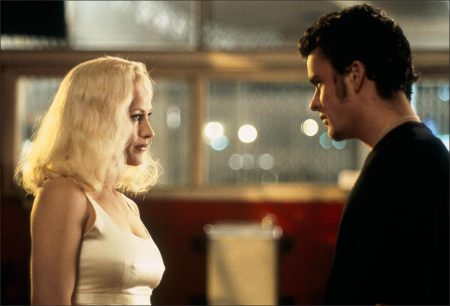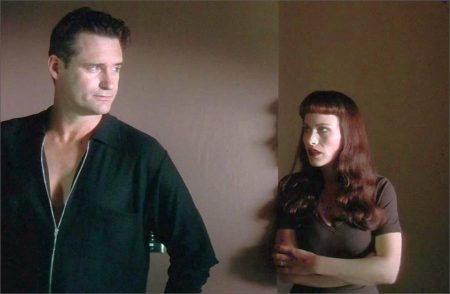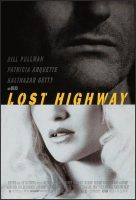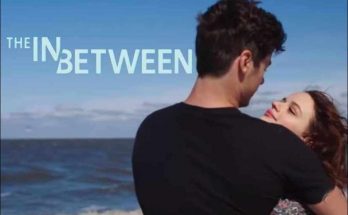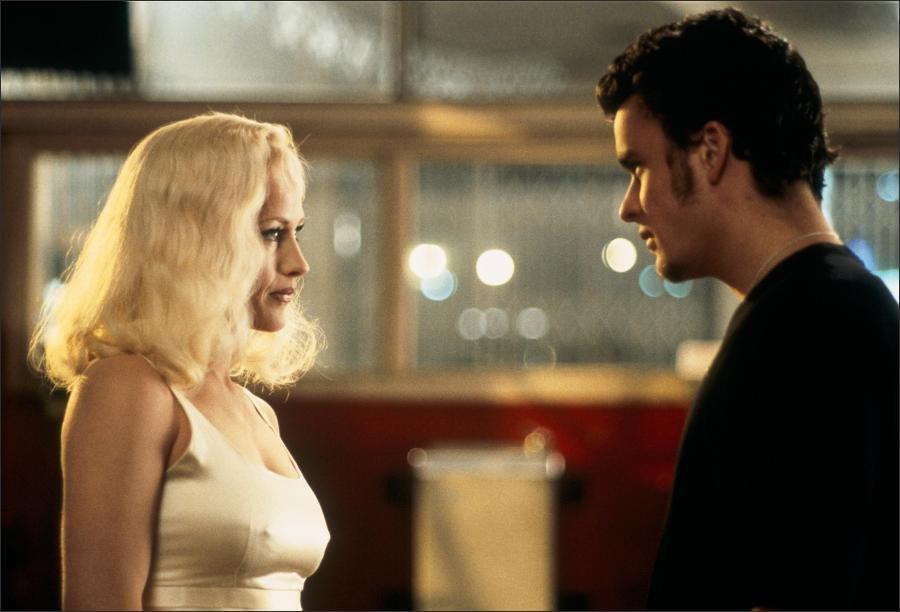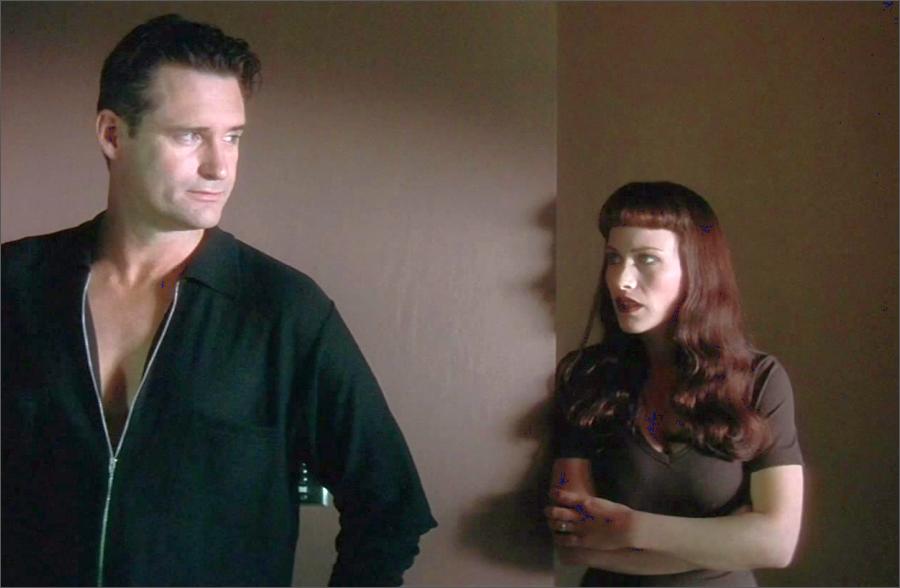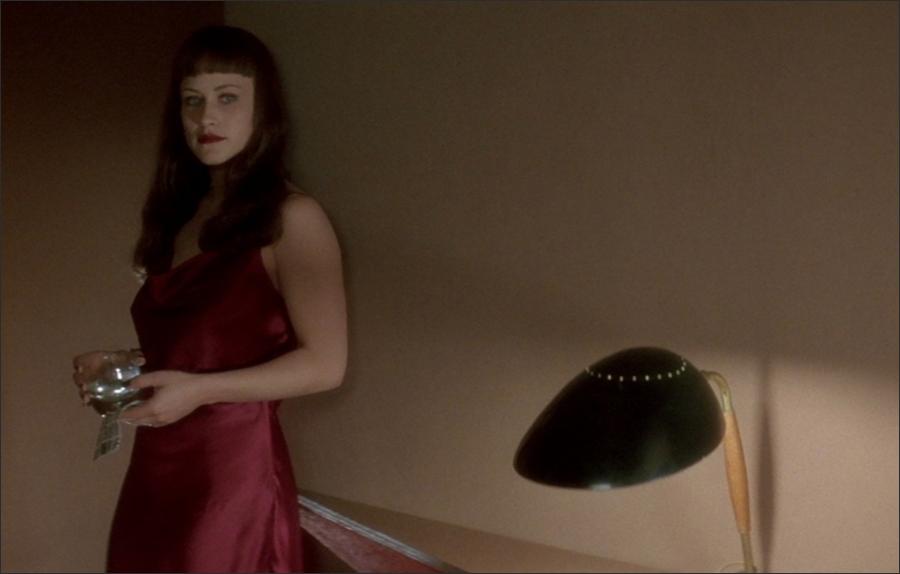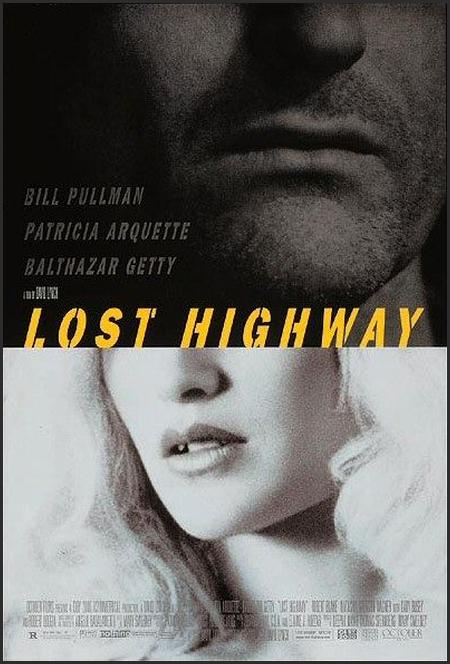Lost Highway Movie Storyline. Haunting sexuality, ricochet action and fleeting, murderous shadows await you on a journey that begins and ends on the Lost Highway. Guilt, denial, suspicion, and dread have crept into the sunny City of Dreams and the minimalist house of the affluent jazz tenor saxophonist, Fred Madison, and his soft-spoken wife, Renee, marking the gradual deterioration of their marriage. For the past three days, someone has been leaving mysterious unmarked videotapes at the front door of the reticent couple, triggering a series of bizarre hallucinations, dissociation, and murder with their increasingly disturbing content.
Now, an amnesiac Fred finds himself on death row, while elsewhere in the city, the young, fresh-out-of-prison auto mechanic, Pete Dayton, dices with death, playing dangerous love games with the statuesque femme fatale and trophy girlfriend of the short-fused criminal overlord, Mr Eddy. And in the darkened lost highway of torn hopes and unfulfilled promises, seduction, betrayal, and death intersect. In the end, is Dick Laurent dead?
Lost Highway is a 1997 neo-noir film directed by David Lynch and co-written by Lynch and Barry Gifford. It stars Bill Pullman, Patricia Arquette, Balthazar Getty, and Robert Blake. The film follows a musician (Pullman) who begins receiving mysterious VHS tapes of him and his wife (Arquette) in their home, and who is suddenly convicted of murder, after which he inexplicably disappears and is replaced by a young mechanic (Getty) leading a different life.
Lost Highway was financed by the French production company Ciby 2000 and was largely shot in Los Angeles, where Lynch collaborated with frequent producer Mary Sweeney and cinematographer Peter Deming. The film’s surreal narrative structure has been likened to a Möbius strip, while Lynch has described it as a “psychogenic fugue” rather than a conventionally logical story. The film’s soundtrack, which was produced by Trent Reznor, features an original score by Angelo Badalamenti and Barry Adamson, as well as contributions from artists including David Bowie, Marilyn Manson, Rammstein, Nine Inch Nails and The Smashing Pumpkins.
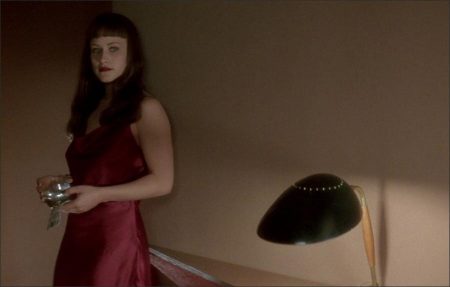
Box Office Results
Upon release, Lost Highway received mixed reviews and grossed $3.7 million in North America after a modest three-week run. Most critics initially dismissed the film as incoherent, but it has since attracted a cult following and critical praise, as well as scholarly interest. Lost Highway is the first of three Lynch films set in Los Angeles, followed by Mulholland Drive in 2001 and Inland Empire in 2006. In 2003, the film was adapted as an opera by the Austrian composer Olga Neuwirth.
Lost Highway was released in France on January 15, 1997. In North America, the film premiered at the Sundance Film Festival in Park City, Utah, in January 1997. The film was then given a limited release on February 21, 1997 in 12 theaters, grossing nearly $213,000 at the US box office weekend. The film expanded a week later in 212 theaters and, after a modest three-week run, it went on to make $3.7 million in North America. On May 19, 2017, Lost Highway was released in Russia and grossed $28,347. Overall, the film grossed nearly $3.8 million worldwide.
Themes
Although Lost Highway is generally classified as a neo-noir film, the film borrows elements from other genres, including German Expressionism and French New Wave. The terms psychological thriller and horror film have also been used to describe its narrative elements. Writing for the Australian Metro Magazine, Thomas Caldwell described Fred Madison as “a typical film noir hero, inhabiting a doomed and desolate world characterised by an excess of sexuality, darkness and violence.”
Another film noir feature that is present in the film is the femme fatale (Alice Wakefield), who misleads Pete Dayton into dangerous situations.[29] The film was also noted for its graphic violence and sexual themes. Lynch defended these images, stating that he was simply being honest with his own ideas for the film.
Some of the film’s themes and ideas had been explored before: the 1945 film Detour also focuses on a disturbed male nightclub musician. The film’s setting and mysterious recorded messages were seen as a reference to the 1955 film Kiss Me Deadly, while its nightmarish atmosphere has been compared to Maya Deren’s 1943 short film Meshes of the Afternoon. Like Alfred Hitchcock’s 1958 film Vertigo, the film examines male obsessions with women, who merely represent emotions that relate to them.
Lynch has described the film as a “psychogenic fugue” and insisted that, while Lost Highway is about “identity”, the film is very abstract and can be interpreted in different ways. He does not favor advancing a specific interpretation and said that the film leaves viewers to interpret events as they choose. Gifford, however, thinks that the film offers a rational explanation to its surreal events. According to him, Fred Madison is experiencing a psychogenic fugue, which is manifested when he transforms into Pete. Some viewers think that the film is a homage to Ambrose Bierce’s 1890 short story “An Occurrence at Owl Creek Bridge”.
The film’s circular narrative has been likened to a Möbius strip. Cultural critic Slavoj Žižek felt that this circularity is analogous to a psychoanalytic process. According to him, “there is a symptomatic key phrase (as in all of Lynch’s films) that always returns as an insistent, traumatic, and indecipherable message (the Real), and there is a temporal loop, as with analysis, where the protagonist at first fails to encounter the self, but in the end is able to pronounce the symptom consciously as his own.”
This implies that Fred’s madness is so powerful that even the fantasy where he sees himself as Pete ultimately dissolves and ends in a nightmare. He also interprets the film’s bipartite structure as exploiting “the opposition of two horrors: the phantasmatic horror of the nightmarish noir universe of perverse sex, betrayal, and murder, and the (perhaps much more unsettling) despair of our drab, alienated daily life of impotence and distrust.”
Lost Highway (2022) – Re-Release
Directed by: David Lynch
Starring: Bill Pullman, Patricia Arquette, Balthazar Getty, Robert Blake, Natasha Gregson Wagner, Gary Busey, Robert Loggia, Mink Stole, Leonard Termo, Ivory Ocean, Balthazar Getty
Screenplay by: David Lynch, Barry Gifford
Production Design by: Patricia Norris
Cinematography by: Peter Deming
Film Editing by: Mary Sweeney
Costume Design by: Patricia Norris
Set Decoration by: Leslie Morales
Art Direction by: Russell J. Smith
Music by: Angelo Badalamenti
MPAA Rating: R for bizarre violent and sexual content, and for strong language.
Distributed by: Janus Films
Release Date: June 24, 2022, February 21, 1997 (Original Release)
Views: 139
